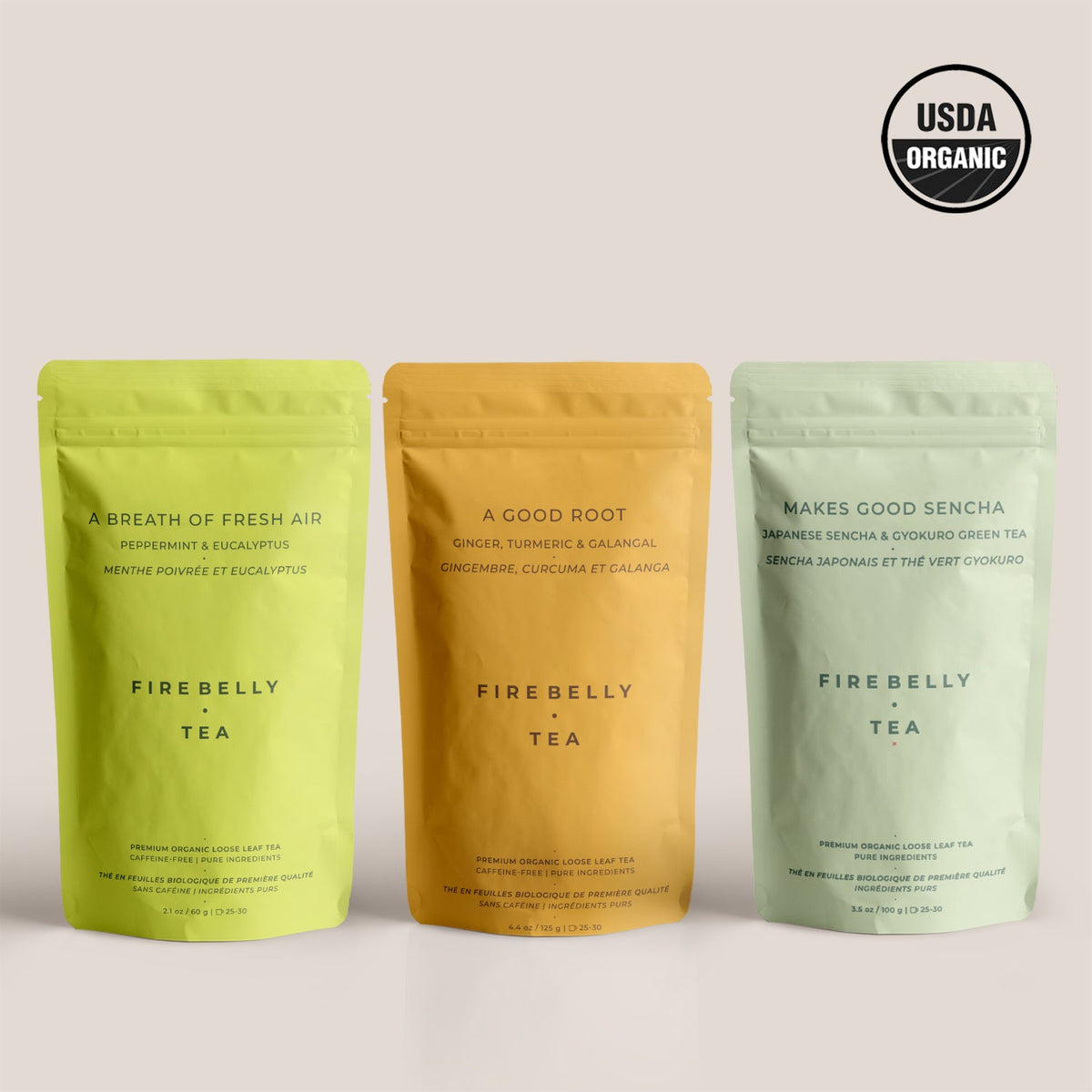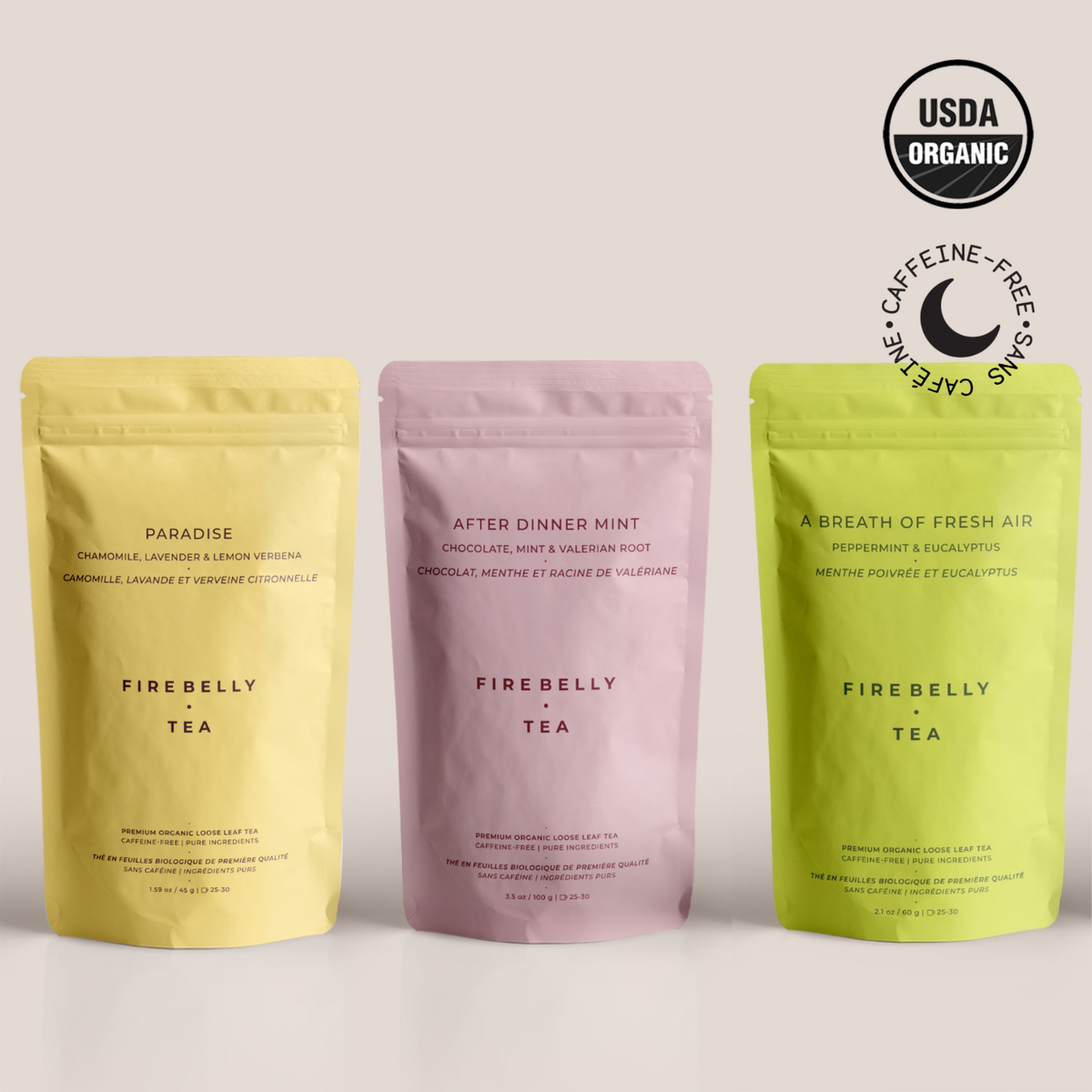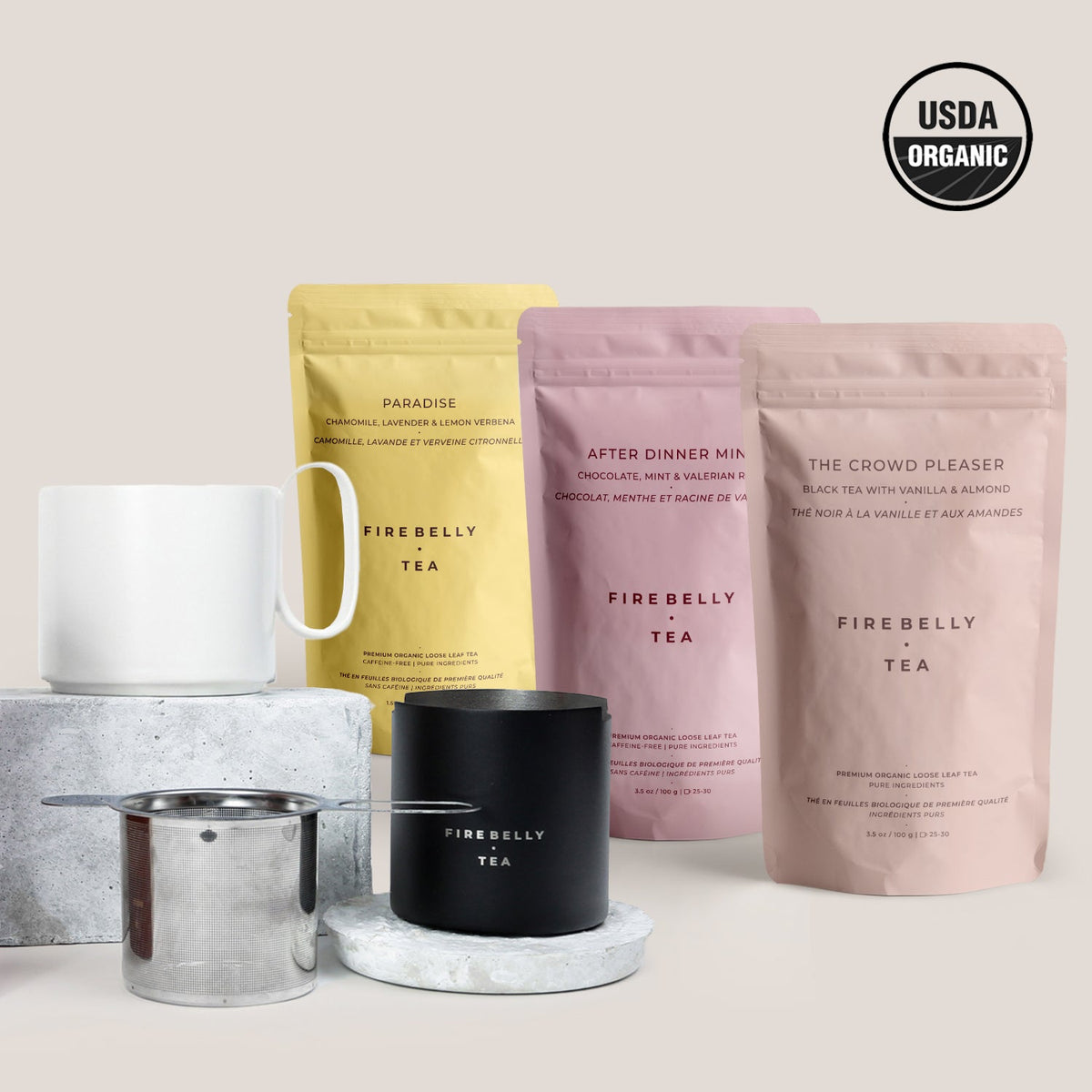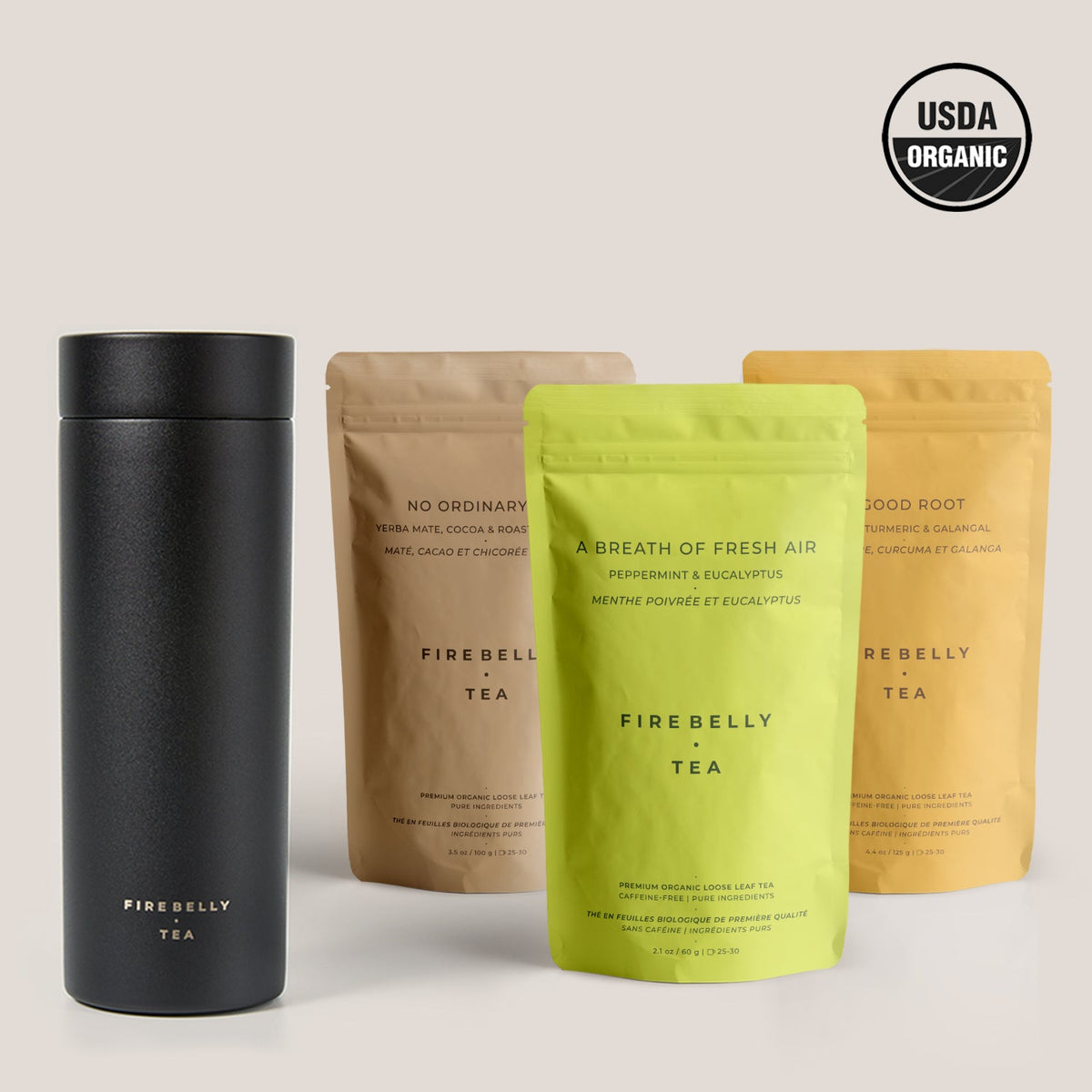The brain is the most complex organ. It's responsible for everything from breathing and digestion to thinking, feeling, and movement. It is the body's control center, and its function is vital to our existence, health, and well-being. We should do what we can to keep our brain health optimum.
The good news for tea lovers (like us!) is that drinking tea regularly benefits cognitive health. It improves brain function and cognitive abilities and reduces the risk of age-related cognitive decline.
This article explores how our brains function, the teas that can help them function better, and why you should drink tea daily.
How Our Brains Function
The brain is made up of various brain regions that are home to billions of neurons. Neurons are specialized cells that transmit information through electrical and chemical signals. The process of neurons communicating with each other is responsible for everything from simple reflexes to complex behaviors and emotions.
The outer layer of the brain is where conscious thought and decision-making happen. The region at the base of the brain controls movement and coordination. The brainstem connects the brain to the spinal cord and controls essential functions such as breathing, heart rate, and blood pressure.
All the brain regions have functional connections to one another and the rest of the body. Over time, the brain regions adapt and change, allowing us to learn new skills, form new memories, and recover from injuries or trauma. However, as much as the brain can learn and heal, it's also susceptible to damage from various factors such as disease, injury, and aging.
The brain is a complex marvel that even scientists don't fully understand. Ongoing research and advancements in technology keep revealing new insights into how the functional connections of our brains function and how we can optimize their performance. Some of this research has involved the effects of tea on the brain, with positive results.
Drinking Tea is Great For the Brain!
Drinking tea for human health is not a newly discovered concept. Tea has been one of the most consumed beverages in the world for centuries. Regular tea drinkers enjoy various beneficial effects on their physical, emotional, and psychological well-being - and it benefits brain health!
Habitual tea drinking can slow down working memory loss, enhance focus and concentration, and help prevent the age-related decline of cognitive functions. Besides these incredible benefits of tea, a hot cup of freshly brewed tea can be just what you need to kickstart your day.
If you are interested in how drinking tea can help your cognitive health, here are some of the top teas that can boost your brain efficiency.
Matcha Tea
Matcha is made from finely ground, shade-grown green tea leaves. It is known for having a super high concentration of antioxidants and various beneficial compounds that may promote human brain function. Here are a few ways in which matcha may be good for the brain:
It contains caffeine
Like other types of tea and coffee, matcha contains caffeine, which can help improve focus, attention, and alertness. Caffeine also boosts the production of dopamine and norepinephrine, two neurotransmitters known for their effects on brain activity and mood improvement.
Rich in L-theanine
L-theanine is a unique amino acid that promotes relaxation, reduces stress and anxiety, and improves sleep quality. L-theanine also has a synergistic effect with caffeine, which means that it can help enhance the benefits of caffeine while reducing its adverse side effects, like jitteriness.
Antioxidant-rich
Matcha is loaded with antioxidants like EGCG (epigallocatechin gallate) and catechins, which have a protective effect on the brain. These compounds can help reduce inflammation, protect against oxidative stress, and promote the growth of new brain cells, all of which are important for the brain.
Improved learning
Studies have suggested combining caffeine and L-theanine found in matcha may improve brain network function that affects memory and attention. For example, one study found that consuming caffeine and L-theanine enhanced cognitive abilities and reduced mental fatigue during a demanding task.
Matcha's combination of caffeine, L-theanine, and antioxidants makes it a good beverage for healthy brain function. You can order ceremonial-grade matcha tea here and have it delivered to your door.
Green Tea
This is a popular beverage enjoyed worldwide. It's known for its numerous health benefits. One of these benefits is its potential to improve brain connectivity. Here are some ways in which this healthy tea benefits the brain:
Caffeine content
Like other types of tea and coffee, green tea contains caffeine, which can help improve focus, attention, and alertness. Caffeine consumption boosts the production of dopamine and norepinephrine, two neurotransmitters that can enhance brain function and mood.
L-theanine
L-theanine is a unique amino acid found in this tea, which can promote relaxation, reduce stress and anxiety, and improve sleep quality. L-theanine also has a synergistic effect with caffeine, which means that it can help enhance the benefits of caffeine while reducing its adverse side effects, like jitteriness.
High in antioxidants
Green tea contains catechins, a group of antioxidants with neuroprotective effects. These compounds can help reduce inflammation, protect against oxidative stress, and promote the growth of new brain cells, all of which are important for brain function.
Some studies have suggested that regular green tea consumption may reduce the risk of neurodegenerative conditions, including Alzheimer's and Parkinson's. These diseases are characterized by the loss of neurons in the brain, and the antioxidants found in green tea may help protect against this damage.
Improved memory and learning
Studies show that the combination of L-theanine and caffeine in green tea may improve brain organization, including memory and attention. For example, one study found that consuming a mix of caffeine and L-theanine enhanced cognitive performance and reduced mental fatigue during a demanding task.
Overall, this super healthy tea's combination of caffeine, L-theanine, and antioxidants makes it a promising beverage for promoting functional connectivity in the brain. What's more, the effects of green tea are not only beneficial to the brain structure; it's also great for weight management, type 2 diabetes, inflammation, and more!
Firebelly Tea has a range of premium-quality loose-leaf green tea options to choose from.
Black Tea
Black tea is a popular tea made from the same plant as green tea and matcha. It has also been extensively studied for its potential health benefits. Here are a few ways in which black tea may be good for the brain:
Caffeine content
Like other types of tea and coffee, black tea contains caffeine, which can help improve focus, attention, and alertness. Caffeine also boosts the production of dopamine and norepinephrine, two neurotransmitters that can enhance brain function and mood.
High in antioxidants
Black tea contains antioxidants called theaflavins, which have neuroprotective effects. These compounds can help reduce inflammation, protect against oxidative stress, and promote the growth of new brain cells, all of which are important for the brain.
It may reduce the risk of stroke
Some studies have suggested that regular consumption of black tea may be associated with a reduced risk of stroke. Stroke is a severe neurological condition that can cause long-term disability, and the antioxidants found in black tea may help protect against this damage.
Studies have suggested that consuming black tea may improve the brain's functional connectivity, including memory and attention. For example, one study found that drinking black tea improved the ability to perform cognitive tasks and reduced mental fatigue during a demanding task.
Positive effects on mood
Black tea has a calming effect on the mind, which may help improve mood and reduce stress and anxiety.
Overall, regular black tea consumption will give you a boost of caffeine and antioxidants - a promising combination that benefits the brain. There are various tasty black tea flavor options at Firebelly Tea. Try them all and find your favorite.
Ginger
Ginger is a fiery, spicy root used in natural medicine for centuries and as a delicious way to spice up tea. It is used in herbal tea for various ailments but also has potential benefits for the brain. Here are a few ways in which ginger may be good for the brain:
A potent anti-inflammatory
Inflammation is a natural body response when it's injured or infected. However, chronic inflammation can contribute to various neurological disorders, including Alzheimer's and Parkinson's. Ginger contains gingerols and shogaols, compounds with anti-inflammatory properties that may help protect against neurological damage.
Improved memory and attention
Some studies have suggested ginger may improve healthy cognitive function, including memory and attention. For example, one study found that ginger helps improve healthy cognitive function and reduces mental fatigue during a demanding task.
Reduced stress and anxiety
Stress and anxiety can negatively affect brain function, and ginger has calming properties that may help reduce stress and anxiety. One study found that consuming ginger helped reduce stress in participants undergoing a stressful task.
Protects the aging brain
Research revealed that the compounds in ginger may have protective effects against neurodegenerative diseases, including Alzheimer's and Parkinson's. For example, one study found that a compound in ginger called 6-shogaol protected against the toxic effects of a protein that's a contributing factor in the development of Alzheimer's.
It improves blood flow to the brain
Adequate blood flow to the brain is essential for proper brain function, and ginger has vasodilatory properties, which means it can help blood flow better to the brain.
Overall, ginger's anti-inflammatory properties, potential cognitive benefits, and calming effects make it a promising natural remedy for promoting brain function. Try the Firebelly Tea Chai Me Up blend for a delicious brain boost.
Turmeric
Turmeric is a yellow spice made from a root. It's been used in traditional medicine and as an ingredient in tea for centuries. Here are a few ways in which turmeric may be good for the brain:
Powerful anti-inflammatory properties
Chronic inflammation has been linked to a variety of neurological disorders, including Alzheimer's and Parkinson's disease. Turmeric contains curcumin, a healthy compound with potent anti-inflammatory properties that may help protect against neurological damage.
Improved memory and attention in the elderly
Some studies have suggested that consuming turmeric may improve cognitive abilities, including memory and attention. For example, one study found that consuming curcumin enhanced cognitive performance in older adults with mild cognitive impairment.
It may help prevent Alzheimer's
Turmeric may protect against neurodegenerative conditions like Alzheimer's and Parkinson's disease. For example, one study found that curcumin reduced the accumulation of beta-amyloid plaques - a hallmark of Alzheimer's disease, in the brains of mice.
Makes a positive contribution to mood
Turmeric has mood-boosting properties, which may be due to its ability to increase serotonin and dopamine levels, both responsible for regulating mood. Turmeric can therefore help reduce symptoms of depression and anxiety and is an excellent ingredient in tea.
Improved blood flow to the brain
Adequate blood flow to the brain is essential for proper brain function, and curcumin has vasodilatory properties, which means that it can improve blood flow to the brain.
Turmeric's anti-inflammatory properties, potential cognitive functioning benefits, and mood-boosting effects make it a promising natural remedy for improving depressive symptoms.
The Firebelly Zest For Life tea blend contains ginger and turmeric, and it's delicious.
5 Tea Components That Make it Great For Brain Health
Tea is a rich source of natural compounds that may benefit the brain. Here are the key compounds found in tea that are excellent for keeping brain networks functioning:
#1. Caffeine
Tea contains caffeine, which is a natural stimulant. In moderation, caffeine can boost alertness, concentration, and cognitive abilities. It works because it blocks the effects of adenosine, a neurotransmitter that can cause you to feel drowsy and sleepy.
#2. L-theanine
This amino acid has calming properties and may help reduce stress and anxiety. It works by increasing the production of alpha waves in the brain, which can help promote relaxation and mental alertness. No wonder a cup of tea is so relaxing!
#3. Polyphenols
Tea contains a group of antioxidants called polyphenols, which have neuroprotective effects. Polyphenols can help protect against oxidative stress, inflammation, and the accumulation of beta-amyloid plaques, which are associated with Alzheimer's disease.
#4. Epigallocatechin gallate (EGCG)
Green tea extract contains a specific type of polyphenol called EGCG, which have potent neuroprotective effects. EGCG can help protect against the damage caused by free radicals and promote new brain cell growth.
#5. Theaflavins
Black tea contains a group of polyphenols called theaflavins, which have anti-inflammatory and antioxidant properties. Theaflavins can help protect against the damage caused by free radicals and may also help improve blood flow to the brain.
Increase Your Tea Consumption Today
Drinking tea is a healthy food choice and has incredible effects on brain function. The combination of L-theanine and caffeine makes it excellent for focus. The antioxidant and anti-inflammatory properties protect the brain regions - preventing cognitive impairment and improving functional connections.
And if the effects of tea on the brain are not enough to convince you of the wonders of tea consumption, the taste will. Order one of the delicious Firebelly Tea variety packs today.















